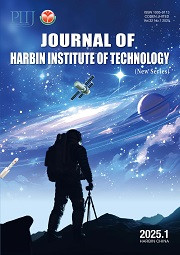|
| Abstract: |
| Aimed at that only one form of channel statistic information is utilized in traditional robust precoder schemes: either the channel mean or the transmit antenna correlation in multiple-input multiple-output (MIMO) wireless system, this paper proposes robust precoder designs which exploit both of statistic information to minimize the equalization mean-square error (MSE) with power constraint. Two different power constraints are studied. Besides the usual sum power constraint over all antennas, the per-antenna power constraint is imposed at transmitter in this paper. Since each antenna has its own amplifier, individual power constraint on each antenna is more realistic. Especially in MIMO-OFDM systems, the Peak-to-Average Ratio (PAR) is one of main practical problems. Simulations show that the proposed schemes have better performance than traditional normalized zero forcing schemes for imperfectly known correlated channel. Moreover, per-antenna power constraint can efficiently decrease the demand of dynamic range of power amplifier on each transmit antenna, especially in MIMO-OFDM systems. |
| Key words: precoder convex optimization imperfect channel knowledge multiple-input multiple-output (MIMO) systems |
| DOI:10.11916/j.issn.1005-9113.2009.01.008 |
| Clc Number:TN911.22 |
| Fund: |






